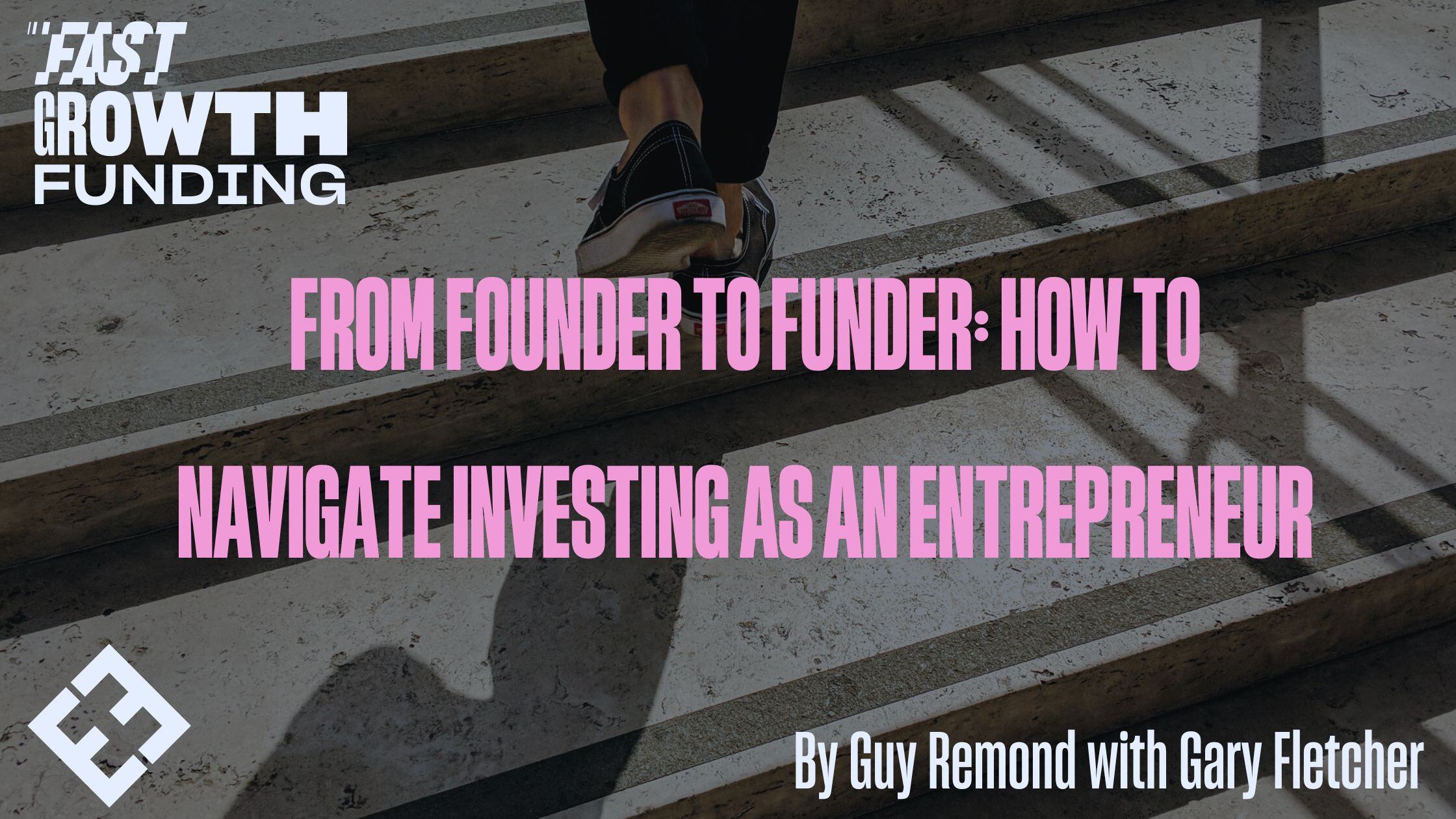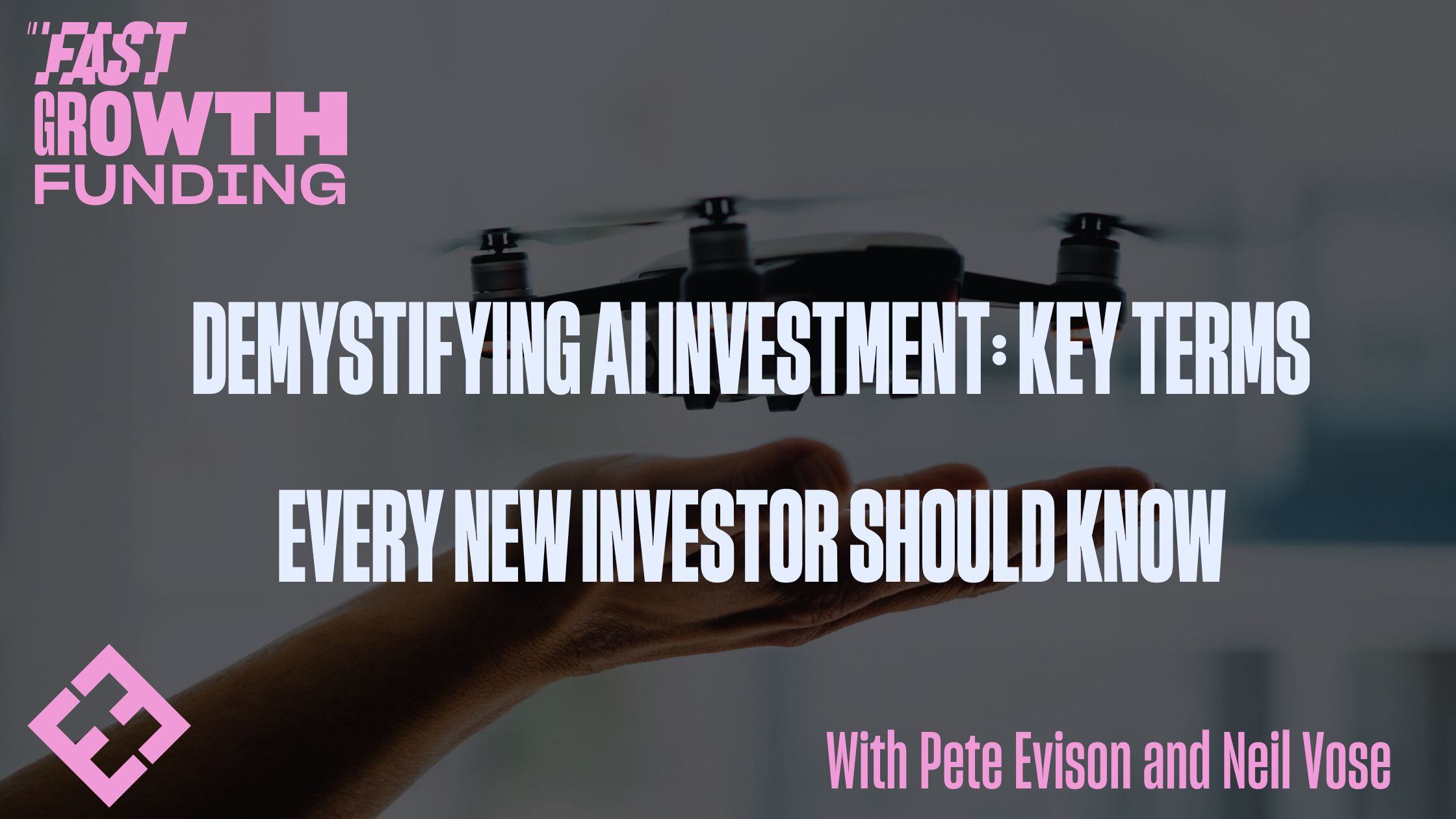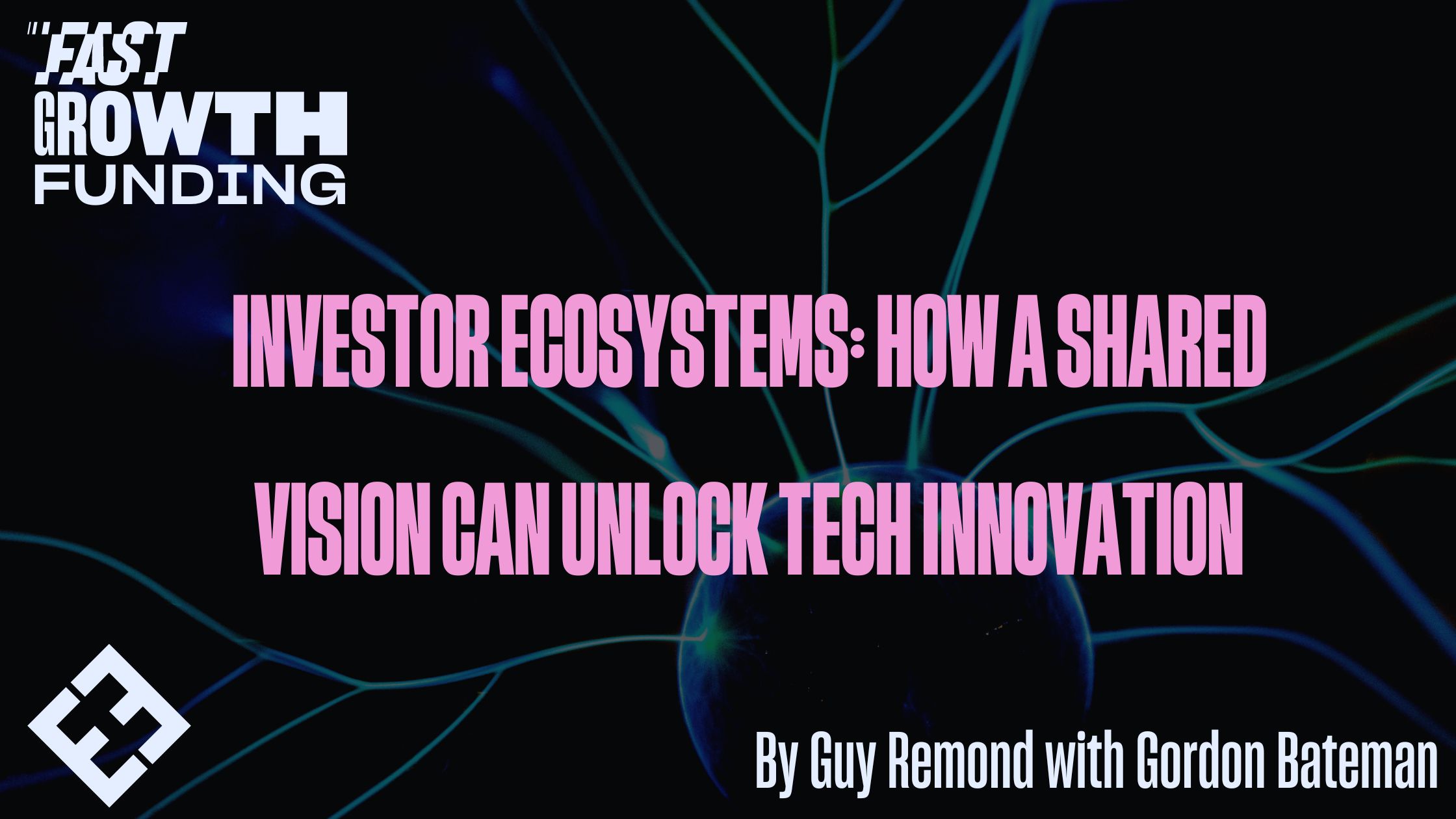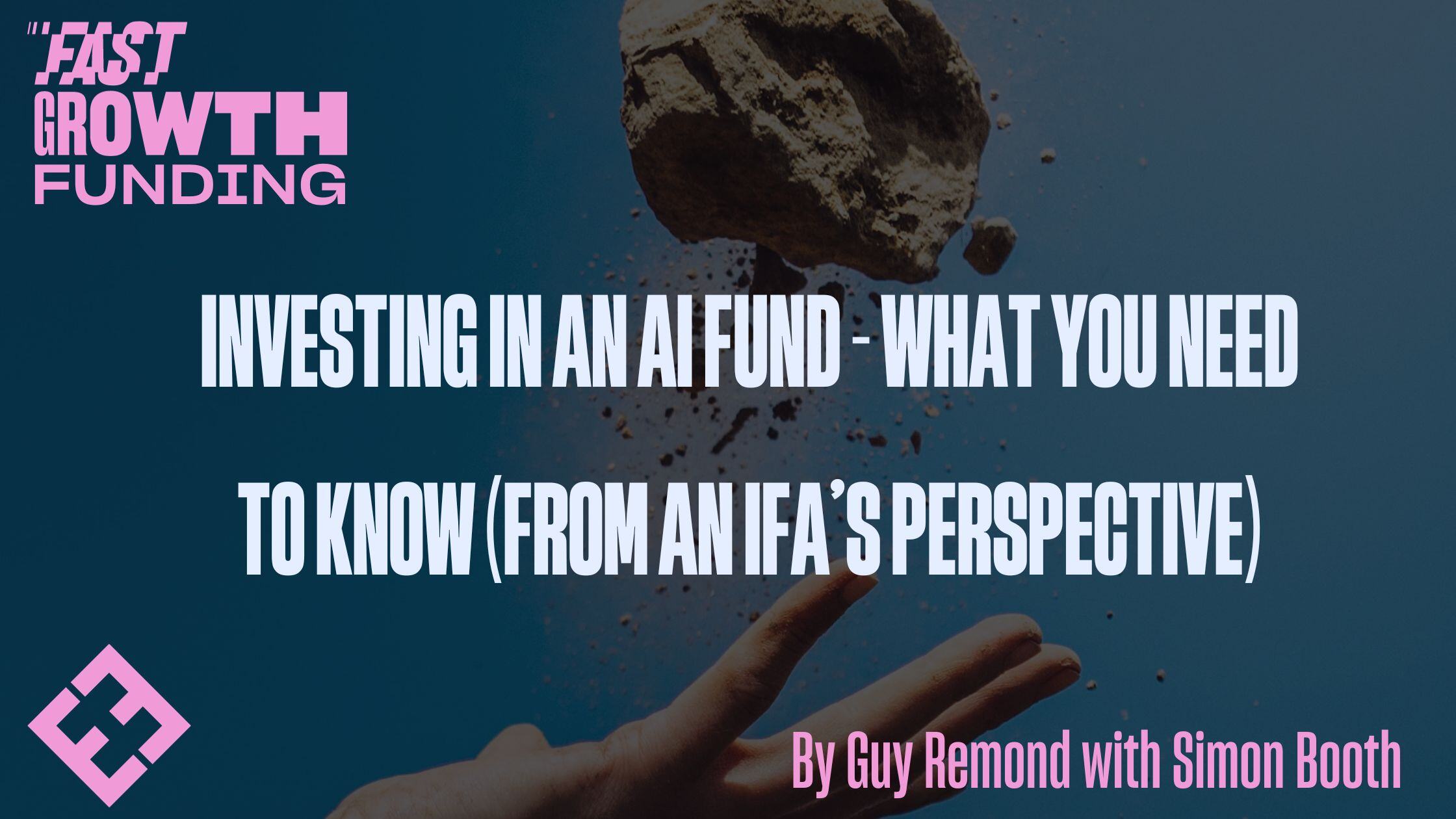Demystifying AI Investment: 4 Key Terms Every New Investor Should Know
With Pete Evison and Neil Vose
4 min read
Pete Evison : Dec 20, 2023 9:00:00 AM

There are two main breeds of investors.
First, there are the typical textbook investors – professional VCs and equity firms. On the other hand, you have successful entrepreneurs who have exited their businesses and are now looking to help other founders scale successfully.
Gary and I fall under this second category.
After exiting our respective businesses, we became investors. We knew the challenge founders faced and wanted to establish a community of tech entrepreneurs to share our experiences, and help get them primed for investment and fast growth.
We would then invest in these companies, knowing that they had been set up for success. For many entrepreneurs new to this world of AI investment, finding tech companies with all the right ingredients for fast growth is not always easy.
As the saying goes, you may have to kiss a lot of frogs before you can find that prince.
That’s why in this blog, we’ll share our collective experiences as well as some actionable tips for founders turned investors. You can also listen to our conversation about this same topic on the Fast Growth Funding podcast.
Textbook investors vs entrepreneurs
One of the key points worth noting is that the entrepreneur’s and the investor’s mindset are quite different. Entrepreneurs are often very hands-on people (guilty!), and they can sometimes try and take this into their role as investors, getting involved where they don’t need to be.
So, as a new founder-turned-funder, you have to re-educate your mindset, become more hands-off and respond when you’re asked to, rather than diving in at will.
Additionally, entrepreneurs are known for making quicker decisions, which sets them apart from professional VC investors who typically take a more measured and balanced approach.
Entrepreneurs are more inclined to make swift (and often risky) investment decisions. They know business is risky, and they’re OK with investing earlier for a better valuation, whereas institutional investors are often happy to pay more money for more certainty further down the line.
The big question is: how do you strike a balance between these two divides as a new investor to minimise your risk and max out on the reward?
The secret sauce for successful investing
After exiting your business, you might want to jump into something new right away to fill the gap. Within the first few months, you’ll likely come across many opportunities that seem exciting, and it’s easy to get sucked in too quickly – we certainly have!
When we started investing, we both got multiple calls from investment houses and companies who wanted to work with us and get guidance along their high-growth journey. In fact, I ended up sitting as a non-executive director for multiple companies – a decision I don’t regret.
However, it’s essential that you take some time to truly assess your situation and do some research before committing to anything. You’ve made some money, which is great. Don’t dive into anything just yet.
We typically recommend giving yourself at least 12 months from your exit to decide what you want to do with the rest of your life and the money you’ve made along the way. This way, you can get into the thick of things armed with the knowledge and personal conviction you need along this journey.
People, passion and smart investing
When it comes to investing in businesses, there are two key things to keep in mind.
First, you have to like the people you’re going in with. In previous blogs, we’ve talked about founder-investor fit, and this holds true even when you’re acting as a non-executive director. More often than you’d like, there may be personal clashes when things don’t go as planned. In these scenarios, working with people whose vision matches yours can make all the difference.
Secondly, you have to really believe in the company’s mission. Investing isn’t just about the cash (it’s never been). It’s about helping other people – founders like yourself – reach their true potential.
Over the years, we’ve both worked with multiple companies, and we get a kick out of helping them scale very quickly. While we can’t say we’ve gotten it right all the time, the experience we’ve acquired along the way allows us to help people make more good decisions than bad ones, and advise them on that basis.
As a non-exec, your job is to question the CEO and help them make the right decisions at all times. This doesn’t necessarily mean grandstanding or trying to put them on the spot. Instead, it should be at a personal level, perhaps over a coffee or a beer at the pub. Genuinely try to be helpful and provide as much guidance as possible.
The keyword here is helpful.
The 10x growth mindset
While money isn’t the be-all and end-all of investing, profitability is still something every investor looks out for. So, when it comes to backing startups and early-stage businesses, it’s important to vet them against long-term growth potential.
For every company we get involved with – both on a corporate and personal level – we have to believe that it will 10x our investment and make our time really worthwhile. By 10x-ing our investment, we’re also maximising the exit for the founder and every other shareholder.
This means that everyone across the board needs to have that fast-growth mindset. As much as possible, we try to nurture this mindset in people and encourage behaviours where everybody wins.
Because, at the end of the day, people are the driving force behind successful businesses and investments. Once you’ve got the right people on your team, you’ve ticked off one step along the way to fast growth.
In a nutshell
1) Assess your situation after exiting your business.
2) Work with people you like.
3) Believe in your portfolio company’s mission.
4) Have (and encourage) a 10x growth mindset.
Have you found this blog helpful?
If you’re a tech-focused investor who is keen to make the most of new opportunities, we’ve got something for you. We’re launching a new EIS-qualified fund for UK-based early-stage and growth AI investments. To find out more, you can register your interest here.
Rich text modules are great since they are flexible and you can add an image, CTA, video, and of course... text!

With Pete Evison and Neil Vose

By Guy Remond, with special guest Gordon Bateman

By Guy Remond with Simon Booth